
Can Lactose Intolerance Cause Constipation?
Lactose Intolerance occurs due to a deficiency of lactase, the enzyme responsible for digesting lactose in the small intestine.

Everyone experiences digestive health issues at one point or another in life. Trying new food, eating an undercooked meal, or ordering food from a restaurant that doesn’t prioritize hygiene can all cause you to suffer stomach problems. Symptoms may vary in intensity. Severe symptoms include unrelenting abdominal pain, vomiting, fever/chills and profuse watery or bloody diarrhea. If you are experience any of these symptoms, you should seek immediate medical attention.
However, if your symptoms are not severe, you can try engaging in particular exercises to try and alleviate pain and discomfort. Practicing such exercises often can help you control embarrassing gas troubles and belches and maintain good digestive health.
Digestive problems can also lead to unhealthy weight gain, low energy levels, acid reflux, irregular bowel movements, and constipation. Understand that healthy eating habits will not always guarantee a healthy digestive system. That is why you should pair that with a set of daily exercises.
The digestive system is made up of a series of masterfully crafted organs that work unanimously to help convert the foods we eat into their simplest forms which are then easily absorbed into the bloodstream. Of course, proper sleep habits and a healthy diet positively impact your digestive system, but you need to consider regular workouts as well.
The reason is that your lifestyle dictates your health and your overall well-being. So, you cannot afford to overlook the importance of exercising if you want to improve your digestive health. Adopting a consistent exercise routine allows you to provide your digestive system with a gentle massage. That, in turn, will help you digest food better.
Regular exercise will also come in handy if you suffer from constipation because it can activate bowel movements and digestive enzymes. Additionally, regular exercise improves your blood circulation and helps stimulate and energize your nervous, muscular, and endocrine systems. Below are some details on the impact of regular exercise on digestive health.
Reliable and dynamic exercise can help you manage your weight, work on your stomach-related framework, and dispose of poisons from your gut. Here are some of the exercises that promote optimal digestive health.
The go-to exercises when you want to acquire 6-pack abs are sit-ups or crunches, and they can also help boost your digestive health. Making this core workout part of your daily routine four to five times a week means that you will experience less bloating and gas build-up.
Abdominal exercises should be done on an empty stomach to prevent any negative impacts on your health. Individual exercise capacities may vary, so starting with eight to ten repetitions is advisable. As your exercise tolerance builds, you can increase your routine.
Indeed, yoga is an incredible exercise that impacts your entire body. Yoga poses like a triangle, downward dog, upward dog, boat, and child’s pose promote optimal digestion. Doing these postures effectively can loosen the muscles of the mid-region and expand center strength over time, which ultimately results in better gut well-being.
Interestingly, stress plays a major role in escalating conditions like indigestion and irritable bowel syndrome. The best part is that yoga helps you control your emotions better which reduces stress. It is a workout for the mind, body, and soul.
Brisk walking is the easiest and simplest digestive system exercise. In fact, walking is probably the best all-around exercise for your well-being. It is also an ideal exercise that you can incorporate into your routine because it enacts your stomach-related framework into development.
Note that the development invigorates your gastrointestinal system to contract, permitting the digestion of waste and food through the digestive organs. As a result, you will experience less swelling and gas throughout your gastrointestinal lot as well as more normal defecations.
If you experience fecal incontinence, otherwise known as bowel control issues, pelvic floor exercises can be the solution you need. Engaging in this exercise for some time can help you fix your pelvic floor muscles, which will assist with defecations and bladder control.
A gastroenterologist comes in handy, in this case, because they guide you in doing the exercises correctly and may refer you to a physical therapist who specializes in pelvic floor rehabilitation.
One exercise that facilitates quick movement of food through your digestive tract is biking, making it an effective way of moving digestion along in your body. Reducing the water lost in your stools is also possible through biking, which will, in turn, improve digestion. On the other hand, if you want to reduce overall belly fat, biking can also help with that.
That means your digestive system will become more efficient, leading to reduced bloating, more regular bowel movements, and more overall energy. So, consider adding biking to your cardiovascular exercise regime several times a week in line with instructions from your doctor.
If you are suffering from conditions like gas, swallowing difficulties, gastrointestinal malignancies, and constipation, visiting a gastroenterologist near you will help you address such issues. You will also get advice on improving digestive health from such an expert.
Contact us today at one of our Care Centers for comprehensive and quality care and treatment for digestive problems. Our team of board-certified gastroenterologists, pathologists, anesthesiologists, nurse practitioners, and physician assistants will assist in your care and provide you with the best possible treatment.

Lactose Intolerance occurs due to a deficiency of lactase, the enzyme responsible for digesting lactose in the small intestine.
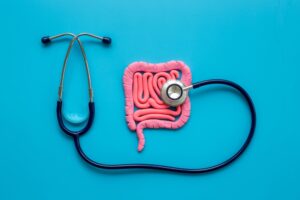
This condition can result from various factors, including poor diet, stress, infections, or underlying health conditions like IBD.

One of the most essential steps in managing IBS is identifying specific triggers and paying attention to your body’s unique responses.

Although the symptoms of IBS can vary widely from person to person, several common signs are associated with the condition.
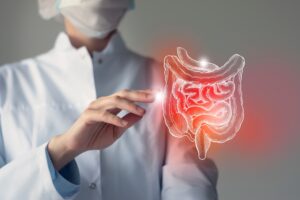
Screening plays a critical role in the early detection and prevention of colon cancer.

Lifestyle choices, including a diet high in processed meats, smoking, and excessive alcohol consumption, can elevate the likelihood of polyp formation.
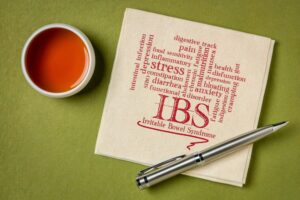
To distinguish IBS from other conditions, doctors assess the patient’s symptoms and medical history and conduct diagnostic tests.

Identifying personal sensitivities and adopting a tailored approach can significantly improve the quality of life for those living with IBS.
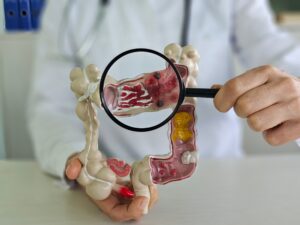
Both conditions may present with abdominal pain, changes in bowel habits, weight loss, and rectal bleeding. However, the underlying causes and progression of these diseases are distinct.
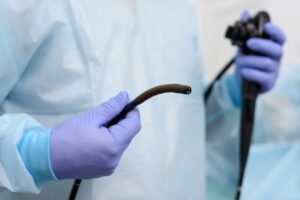
The recovery time after an endoscopy varies depending on the type of procedure and the individual’s overall health.

Digestive irregularities can sometimes lead to weight changes, fatigue, and nutritional deficiencies, highlighting the importance of managing IBS to maintain overall digestive health.
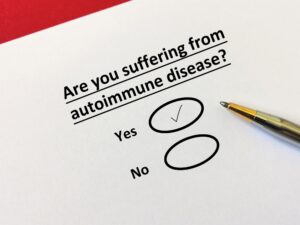
While Irritable Bowel Syndrome (IBS) and autoimmune disorders can share some overlapping symptoms, such as abdominal discomfort and altered bowel habits, they are fundamentally different conditions.
For Your Visit
Brick Office
P: 732-458-8300
Brick Medical Arts Building
1640 Route 88, Suite 202
Brick, New Jersey 08724
Mon – Fri: 8:30AM – 5:00PM
Sat & Sun: Closed
Neptune Office
P: 732-776-9300
Jersey Shore Medical Arts Building
1944 Corlies Ave. Suite 205
Neptune, New Jersey 07753
Mon – Fri: 8:30AM – 5:00PM
Sat & Sun: Closed
Jackson Office
P: 732-928-2300
706 Bennetts Mills Road
Jackson, New Jersey 08527
Mon – Fri: 8:30AM – 5:00PM
Sat & Sun: Closed
© All Rights Reserved